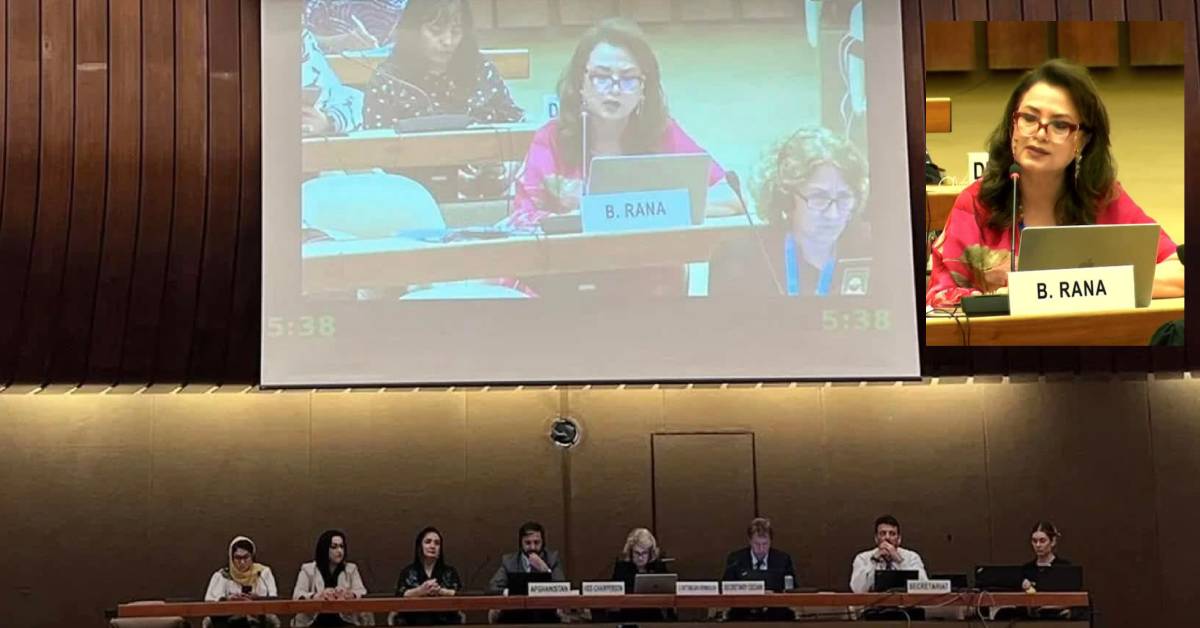

 21.86°C काठमाडौं
21.86°C काठमाडौं

Kathmandu: The UN Committee on the Elimination of Discrimination against Women (CEDAW) held a constructive dialogue on Afghanistan’s compliance with women’s rights obligations under the Convention, led by CEDAW member Bandana Rana.
In her opening remarks, Rana welcomed the delegation of the Permanent Mission of Afghanistan and commended the extraordinary courage of Afghan women and girls, whose voices continue to resonate globally despite systemic oppression.
“This dialogue unfolds amid one of the gravest human rights crises facing women and girls in our time,” she stated, noting that Afghanistan’s obligations under CEDAW remain binding regardless of political changes.
Rana expressed deep concern over the dramatic reversal of women’s rights since the de facto authorities took control in 2021. She cited the ban on girls’ education beyond primary level, exclusion from public life, and the dismantling of legal protections as violations of CEDAW Articles 1 and 2.
Rana also highlighted the abolition of the 2004 Constitution and the repeal of key laws like the Elimination of Violence Against Women Act, which has left Afghan women without legal safeguards. Rana noted that the lack of response from the de facto authorities to the Committee’s queries further demonstrates the erosion of accountability.
The Committee underscored the shrinking civic space for women’s organizations, increased threats to women human rights defenders, and the dismantling of Afghanistan’s Women, Peace and Security framework. It also expressed alarm over the humanitarian crisis, with women and children disproportionately affected by food insecurity and lack of basic services.
Rana concluded with a powerful message: “The voices of Afghan women and girls call out for justice. We must not fail them.” The Committee called on both the de facto authorities and the international community to intensify efforts to restore and uphold the rights of Afghan women and girls in full compliance with CEDAW.